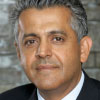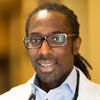| |
Time
|
Activity
|
| |
07:00 - 11:00 |
REGISTRATION OPEN
Room: Convention Level Foyer |
| |
07:00 - 08:30 |
BREAKFAST
Room: Toronto I |
Sponsored by:
 |
|
| |
07:30 - 08:20 |
CABPS Annual General Meeting (Breakfast Meeting)
Room: Tom Thomson |
Plenary
Session |
08:30 - 09:45 |
DEBATES
Room: Toronto II/III
Co-Chairs: Drs. Mehran Anvari and Amy Neville
Details

Mehran Anvari, O.ONT, MB BS, PhD, FRCS(C), FACS
Chair, Minimally Invasive Surgery and Surgical Innovation
Professor, Department of Surgery, McMaster University
Hamilton, Ontario
Dr. Mehran Anvari is a tenured professor of surgery and holds the research Chair of Minimally Invasive Surgery and Surgical Innovation at McMaster University.
Dr. Anvari is the Past President of Canadian Association for Bariatric Physicians and Surgeons, and the clinical lead and chair of the Ontario Bariatric Network. He is the scientific director and CEO of the Centre for Surgical Invention and Innovation, and the founding director of the Centre for Minimal Access Surgery.
Dr. Anvari has been involved in teaching laparoscopic bariatric procedures for over 10 years in Canada and internationally, and is a faculty member for a number of bariatric programs, including the European Institute of Telesurgery (EITS) in Strasbourg, France.
As a researcher, supervisor, mentor and advisor, Dr. Anvari has a continued commitment to teaching, education, publication and innovation. He has authored over 200 publications; holds seven patents; and is the principle investigator of numerous studies related to obesity, gastrointestinal disease, and surgical robotic systems and techniques.
Dr. Anvari has been honored many times for his innovation and research: he was awarded the ORION Leadership Award in 2010 and the ISS R&D Innovation Award in 2015. Dr. Anvari’s work with telerobotics has also been recognized by the federal and provincial government with the “Gold Medal of Distinction” and the “Diamond Award for Innovation in Technology”. Most recently, Dr. Anvari was appointed to the Order of Ontario for his support in the development of medical robotics for early detection and treatment of cancers.

Amy Neville, MD, MSc., FRCS(C)
Assistant Professor of Surgery, University of Ottawa
Medical Director, The Ottawa Hospital Bariatric Centre of Excellence
General Surgery Site Chief, The Ottawa Hospital Civic Campus
Quality Lead for General Surgery. The Ottawa Hospital
Ottawa, Ontario
Dr. Neville completed her residency training in general surgery as well as fellowships in Minimally Invasive Surgery and Bariatric Surgery at McGill University in Montreal. Dr Neville currently practices general, minimally invasive and bariatric surgery at The Ottawa Hospital- Civic Campus in Ottawa, ON. She is an assistant professor of surgery at the University of Ottawa. Dr Neville is Medical Director of The Ottawa Hospital Regional Bariatric Centre of Excellence and a board member of the Ontario Bariatric Network and Canadian Association of Bariatric Physicians and Surgeons. She is currently the Site Chief for General Surgery at the Civic Campus of The Ottawa Hospital and the Quality Improvement Lead for the division of general surgery.
|
| 08:30 - 08:50 |
Duodenal Switch: Should we still do DS as a first stage surgery?
PRO: Speaker: Dr. Dennis Hong
Details

Dennis Hong, MD, MSc., FRCS(C), FACS
Associate Professor at McMaster University
Staff Physician, St. Joseph’s Healthcare Hamilton
Guelph, Ontario
Dr. Dennis Hong is an Associate Professor in the Department of Surgery at McMaster University. He specializes in Minimally Invasive and Bariatric Surgery. Dr. Hong was born in Seoul, South Korea. He completed his undergraduate studies in Biology from the University of Western Ontario in 1992. Dr. Hong received his medical degree (M.D.) from the University of Toronto in 1996. He completed his residency in the Department of Surgery, McMaster University Medical Centre in Hamilton, ON. Then in 2003, he completed a Minimally Invasive Surgery Fellowship at the Legacy Health System in Portland, Oregon, U.S.A.. He joined the Department of Surgery at McMaster University in 2010. He is Associate Director, Centre for Minimal Access Surgery, St. Joseph’s Healthcare, Hamilton, ON.
CON: Speaker: Dr. Michel Gagner †
Details
 Michel Gagner, MD, FRCS(C), FACS, FASMBS Michel Gagner, MD, FRCS(C), FACS, FASMBS
Professor of Surgery, Herbert Wertheim School of Medicine, FIU
Senior Consultant, Hôpital du Sacre Coeur
Montreal, Quebec
Dr. Michel Gagner obtained his Medical Degree in 1982 and did his surgical training at McGill University from 1982-1988. He worked at the Cleveland Clinic where he co-founded the MIS Center (1995-1998). He was appointed Director of the MIS Center of Mount Sinai (NY), from 1998 to 2003. He then joined Weill-Cornell as Chief of Laparoscopic/Bariatric (2003-2007). He was Chair of Surgery at Mount Sinai (Miami), and is currently Professor at FIU, and senior consultant Montreal. In 2014, he founded WWO (World Without Obesity), for the education and development of metabolic surgery in Third World countries. He is also a board member of ASMBS foundation.
Dr. Gagner is known for his contributions in MIS, in particular the first description of laparoscopic adrenalectomy (1992), laparoscopic pancreatectomy (distal/proximal) (1992-93), endoscopic neck surgery with parathyroidectomy in 1995, transgastric cholecystectomy in 1997 (NOTES), laparoscopic DS in 1999 and laparoscopic sleeve gastrectomy in 2000
† Denotes real or potential conflict of interest. Speaker/Presenter requested to declare in his/her presentation slide deck.
|
| 08:50 - 09:10 |
Is food addiction ready for use in obesity programs today?
PRO: Speaker: Dr. Sean Wharton †
Details
 Sean Wharton, MD, PharmD, FRCP(C) Sean Wharton, MD, PharmD, FRCP(C)
Internal Medicine Specialist, Adjunct Professor McMaster University and York University
Diplomat of the American Board of Obesity Medicine
The Wharton Medical Clinic
Toronto East General Hospital
Hamilton Health Sciences Centre
Hamilton, Ontario
Dr. Wharton has his doctorate in Pharmacy and Medicine. He is the medical director of the Wharton Medical Clinic, a community based internal medicine weight management and diabetes clinic. He is an adjunct professor at McMaster University in Hamilton and York University in Toronto. He also works as an internist at Toronto East General Hospital, and the Hamilton Health Sciences. Dr. Wharton is a researcher, and is qualified as a diplomat of the American Board of Obesity Medicine. Dr. Wharton’s research focuses on bariatric medicine and type 2 diabetes. He is the lead author of the weight management section of the 2013 and 2018 Canadian Diabetes Guidelines, and co-chair of the 2018 Canadian Obesity Guidelines.
† Denotes real or potential conflict of interest. Speaker/Presenter requested to declare in his/her presentation slide deck.
Presentation Overview
Food Addiction is a medical condition that is still fairly new in the medical field, yet for patients this condition has been a challenge for them for many years. The pathological aspects of food addiction are similar to many other substance and lifestyle addictions, such as drugs and gambling. Recognition of this condition is necessary for those who are suffering from this addiction. Research into this field to determine the best treatment options are needed. The existence of this condition and the current state of research and treatment options will be discussed.
Learning Objectives
At the end of this presentation, participants should be able to:
- Understand the prevalence of food addiction
- Understand the definition of food addiction
- Understand the treatment options for food addiction
CON: Speaker: Dr. Stephanie Cassin
Details
 Stephanie E. Cassin, PhD, C.Psych Stephanie E. Cassin, PhD, C.Psych
Associate Professor
Department of Psychology
Ryerson University
Toronto, Ontario
Dr. Cassin is a Clinical and Health Psychologist who received her Ph.D. in Clinical Psychology from the University of Calgary. She is an Associate Professor at Ryerson University, and Director of the Healthy Eating and Lifestyle (HEAL) Lab. In addition, she holds a faculty appointment in the Department of Psychiatry at the University of Toronto. Prior to working in academia, she was a staff clinical psychologist in the Bariatric Surgery Program at Toronto Western Hospital. Dr. Cassin’s research interests are in the area of disordered eating, food addiction, obesity, and bariatric surgery. Her current program of research focuses primarily on psychosocial predictors of bariatric surgery outcome, and psychosocial interventions with the potential to improve outcomes.
Presentation Overview
This presentation will take the stance that it is currently premature to recommend and deliver treatment for food addiction within obesity programs. The current evidence in support of food addiction treatment is primarily anecdotal in nature, and no peer-reviewed empirical studies have been conducted to date to examine the efficacy of any food addiction treatment programs. Research is critically needed to demonstrate the efficacy of food addiction treatments before they are widely recommended to patients.
Learning Objectives
At the end of this presentation, participants should be able to:
- Discuss the current state of research on interventions for food addiction.
- Describe potential risks of current approaches for treating food addiction.
- Discuss the type of research that needs to be conducted to determine the efficacy of a treatment for food addiction.
|
| 09:10 - 09:30 |
Quality of Life is Improved Post Bariatric Surgery
THE GOOD: Speaker: Dr. Paul Posner
Details
 Paul Posner, BSc, MD, FRCP(C) Paul Posner, BSc, MD, FRCP(C)
Deputy Chief of Psychiatry
Physician Leader Geriatric Psychiatry
Psychiatry Consultant to the Bariatric Surgery Clinic
Humber River Hospital
Toronto, Ontario
Dr. Posner has been working at the Humber River Hospital since 2000. He was full-time staff until 2016. He is currently part-time staff with responsibilities including Deputy Chief of the Department of Psychiatry, Head of Geriatric Psychiatry, and a Psychiatrist Consultant to the Bariatric Surgery Clinic. He also works in the Outpatient Clozapine Clinic and Outpatient Geriatric Psychiatry Clinic and is an ECT Treatment team member. The other half of his time is spent in his private outpatient office.
Dr. Posner has a Bachelor of Science degree from the University of Toronto (1982), Doctor of Medicine, University of Toronto (1986). He completed his Family Medicine Residency from the University of Toronto in 1988 and his Psychiatry Residency from the University of Toronto in 1991. Following his completion of residency (1991-2000), Dr. Posner worked at the Queen Street Mental Health Centre (later CAMH), was Co-Leader of the Schizophrenia Research Ward, and Co-Head Psychopharmacology Evaluation Program and Clozapine Clinic. He was also involved in Teaching and Research.
Statement for Discussion: “Quality of life is Improved Post Bariatric Surgery”
Position: THE GOOD
Bariatric surgery for obesity is an important, but very specific treatment for facilitating weight loss that may significantly improve the quality of life for some individuals with obesity. As with all such tools, optimal use requires an understanding of when it is appropriate and indicated, Therefore, the statement for discussion may be better phrased as: “Bariatric surgery effectively helps a subgroup of obese individuals to improve their chances to pursue a better quality of life”.
Presentation Overview
Severe obesity is known to be associated with an increased risk of developing a number of serious medical conditions, as well as exacerbating the impact and progression of those conditions. The presence of obesity and related medical conditions exist in complex and mutually interdependent relationships with various historical and current, adverse psychosocial factors, and severe mental illness.
Medical screening for the delivery of the best outcomes for bariatric surgery are required. Similarly, an optimal approach for screening bariatric surgery candidates for relevant psychosocial vulnerabilities and psychiatric illness is essential for the best chance at improved quality of life, and avoidance of adverse outcomes such as the return of weight, substance use, worsening of mood disorders, or less commonly, increased risk of suicide. Proper psychological or psychiatric screening may also lead the use of indicated psychosocial therapies and medications that can either make the surgical option more viable or enable some individuals to attain and maintain desired weight loss without surgery.
Learning Objectives
At the end of this presentation, participants should be able to:
- Overview challenges in studying an outcome as multifaceted as "quality of life"
- Introduce the distinction between attaining short term weight loss versus implementing broader lifestyle changes for maintenance of weight, general health and better quality of life.
- Note the importance of screening for optimal outcomes.
- Recognize and address the risk of shifting dependencies, after surgery.
- Understand the potential impact of bariatric surgery on the primary support group.
THE BAD: Speaker: Ms. Sarah Nutter
Details
 Sarah Nutter, MSc., PhD Cand. Sarah Nutter, MSc., PhD Cand.
Counselling Psychology, Werklund School of Education
University of Calgary
Calgary, Alberta
Sarah Nutter is a PhD candidate in counselling psychology at the University of Calgary under the supervision of Dr. Shelly Russell-Mayhew. She recently completed her doctoral residency in psychology at Memorial University of Newfoundland. Her research focuses on weight bias, with particular interest in better understanding the social, cultural, and ideological influences on weight bias as well as examining weight bias as a social justice issue.
Presentation Overview
Weight bias is a pervasive social issue that negatively impacts people with obesity across all areas of their lives. Often, individuals with obesity hold the negative attitudes, stereotypes, and believes that comprise weight bias, referred to as internalized weight bias. Weight bias, and internalized weight bias are both associated with physical and psychological health consequences. Individuals who undergo bariatric surgery are uniquely impacted by both weight bias and internalized weight bias, both prior to and after surgery. This presentation will review recent research examining the impact of weight bias and internalized weight bias on patients before and after bariatric surgery and will provide recommendations for incorporating the consideration of weight bias into practice.
Learning Objectives
At the end of this presentation, participants will be able to:
- Define weight bias and internalized weight bias
- Identify how weight bias/internalized weight bias impact the health of patients prior to and after bariatric surgery
- Identify ways to incorporate a consideration of weight bias in their work with patients
|
| 09:30 - 09:45 |
Panel Discussion |
Plenary
Session |
09:45 - 11:00 |
BARIATRIC SURGERY AS A WAY TO RESTORE VASCULAR POTENTIAL
Room: Toronto II/III
Co-Chairs: Drs. David Hess and David Lau
Details
 David C. W. Lau, MD, PhD, FRCP(C) David C. W. Lau, MD, PhD, FRCP(C)
Professor of Medicine, Biochemistry and Molecular Biology
University of Calgary Cumming School of Medicine
Calgary, Alberta
Dr. Lau is Professor of Medicine, Biochemistry and Molecular Biology at the Cumming School of Medicine, University of Calgary. He recently completed his 8-year term as Editor-in-Chief of the Canadian Journal of Diabetes and is immediate Past-President of the Canadian Association of Bariatric Physicians and Surgeons (CABPS).
Dr. Lau is Co-Chair of the evidence-based 2018 Clinical Practice Guidelines (CPGs) update on the management of obesity, led by CABPS and Obesity Canada. He also served as an Expert Panel member of the 2018 evidence-based Diabetes Canada CPGs (he also served as an expert member for the 1998, 2003, 2008 and 2013 updates), and a primary panel expert committee member of the 2012, 2016 and 2019 update of the Canadian Cardiovascular Society Guidelines for the diagnosis and treatment of dyslipidaemia and prevention of cardiovascular disease in adults. Dr. Lau is involved in population health and clinical research programmes in diabetes, obesity and lipid disorders.
Dr. Lau was honoured as one of the top 20 notable Calgarians and top 50 Albertans in 2004 for his exemplary contributions to improve the health of Albertans.
 David A. Hess, PhD David A. Hess, PhD
Sheldon H. Weinstein Chair in Diabetes Research
Scientist, Krembil Centre for Stem Cell Biology, Molecular Medicine Research Group, Robarts Research Institute, London, ON, Canada
Associate Professor, Department of Physiology and Pharmacology, Schulich School of Medicine and Dentistry, Western University
Affiliated Scientist, Division of Vascular Surgery, St. Michael’s Hospital
Adjunct Professor, Department of Pharmacology, University of Toronto
Toronto, Ontario
Dr. Hess received his PhD in Pharmacology from Western University in 1999 and performed postdoctoral training in Stem Cells and Regenerative Medicine at the Robarts Research Institute (1999-2003) and at Washington University in St. Louis (2003-2006). Dr. Hess’ research aims to understand how stem cells co-ordinate blood vessel formation and tissue regeneration. Specific applications for his work include the transplantation of human stem cells to improve perfusion in patients with critical limb ischemia and to regenerate insulin-producing beta-cells during diabetes. Dr. Hess' lab has developed novel purification, expansion, and transplantation technologies to permit the delivery of synergistic stem cell lineages within bioengineered scaffolds. Dr. Hess hopes to impact current clinical therapy for diabetes and ischemic diseases through development of safe and effective stem cell therapies. Dr. Hess is a recipient of the MacDonald New Investigator Award from the Heart and Stroke Foundation and is the Sheldon H. Weinstein Chair in Diabetes Research at the Schulich School of Medicine and Dentistry at Western University.
|
| 09:45 - 10:00 |
Stem Cells 101: What Surgeons Should Know About Circulating Vascular Progenitor Cell Exhaustion
Speaker: Dr. David Hess
Details
 David A. Hess, PhD David A. Hess, PhD
Sheldon H. Weinstein Chair in Diabetes Research
Scientist, Krembil Centre for Stem Cell Biology, Molecular Medicine Research Group, Robarts Research Institute, London, ON, Canada
Associate Professor, Department of Physiology and Pharmacology, Schulich School of Medicine and Dentistry, Western University
Affiliated Scientist, Division of Vascular Surgery, St. Michael’s Hospital
Adjunct Professor, Department of Pharmacology, University of Toronto
Toronto, Ontario
Dr. Hess received his PhD in Pharmacology from Western University in 1999 and performed postdoctoral training in Stem Cells and Regenerative Medicine at the Robarts Research Institute (1999-2003) and at Washington University in St. Louis (2003-2006). Dr. Hess’ research aims to understand how stem cells co-ordinate blood vessel formation and tissue regeneration. Specific applications for his work include the transplantation of human stem cells to improve perfusion in patients with critical limb ischemia and to regenerate insulin-producing beta-cells during diabetes. Dr. Hess' lab has developed novel purification, expansion, and transplantation technologies to permit the delivery of synergistic stem cell lineages within bioengineered scaffolds. Dr. Hess hopes to impact current clinical therapy for diabetes and ischemic diseases through development of safe and effective stem cell therapies. Dr. Hess is a recipient of the MacDonald New Investigator Award from the Heart and Stroke Foundation and is the Sheldon H. Weinstein Chair in Diabetes Research at the Schulich School of Medicine and Dentistry at Western University.
Presentation Overview
Recent studies demonstrate blood vessel repair / regeneration requires paracrine and/or structural contributions from multiple circulating progenitor cell lineages; (1) angiocrine-secretory myeloid cells derived from hematopoietic progenitor cells, (2) tubule-forming endothelial cells generated by circulating or vessel-resident endothelial precursors, and (3) vessel-stabilizing perivascular cells derived from mesenchymal stem cells. However, during chronic metabolic diseases such as obesity, type 2 diabetes and atherosclerosis, relentless assault from oxidative stress, inflammation, glucotoxicity and lipotoxicity results in depletion and dysfunction of these vascular regenerative progenitor cells, limiting blood vessel repair. Thus, strategies to combat inflammation and oxidative stress represent a novel therapeutic target to restore vascular regenerative homeostasis and prevent the development of cardiovascular comorbidities during metabolic disease.
Learning Objectives
At the end of this presentation, participants should be able to:
- Identify rare, circulating pro-vascular cell types from hematopoietic, endothelial, and mesenchymal stem cells lineages that act in concert to mediate blood vessel repair.
- Understand the functions of stem cells that coordinate angiogenic, post-natal vasculogenic, and arteriogenic processes.
- Appreciate the development of novel drug, surgical and regenerative medicine approaches to improve vascular homeostasis in patients with metabolic diseases.
|
| 10:00 - 10:15 |
Circulating Pro-Vascular Progenitor Cell Depletion and Recovery During Type 2 Diabetes
Speaker: Ms. Daniella Terenzi
Details
 Daniella Terenzi, BHS, PhD Cand. Daniella Terenzi, BHS, PhD Cand.
Daniella Terenzi graduated from the University of Western Ontario with a Bachelors in Health Science and an honors specialization in biology in 2016. She is currently a graduate student at the University of Toronto in the Institute of Medical Science. Her research interests include pro-vascular progenitor cells in patients with Type 2 Diabetes, the effect of antihyperglycemic agents on progenitor cell content and the reversal of regenerative cell exhaustion in Type 2 Diabetes. She has presented research at the European Molecular Biology Laboratory, the Canadian Cardiovascular Congress and the American Heart Association.
Presentation Overview
Ischemic cardiovascular disease is a major co-morbidity (>70%) in Type 2 Diabetes Mellitus (T2DM) patients. Due to the emerging concept termed “stem cell exhaustion” in patients with T2DM, analyses of circulating progenitor cell phenotypes are needed to assess regenerative cell number and function during disease progression. We used aldehyde dehydrogenase (ALDH) activity, an intracellular enzyme highly expressed in progenitor cells with pro-angiogenic functions, to quantify circulating regenerative cells in patients with established T2DM. This presentation will explore the differences in pro-angiogenic progenitor cell content in patients with T2DM and what this means for the mitigation of ischemic cardiovascular risk. Additionally, we will discuss various patient characteristics and the effect this may have on progenitor cell frequencies.
Learning Objectives
At the end of this presentation, participants should be able to:
- Understand progenitor cell types important in mitigating ischemic complications.
- Explain the differences in progenitor cell frequencies in patients with T2D.
- Use this research to stratify patient groups for risk of ischemic complications and regenerative cell exhaustion.
|
| 10:15 - 10:30 |
Impact of Bariatric Surgery on Circulating Inflammatory and Pro-Vascular Progenitor Cell Populations
Speaker: Mr. Justin Trac
Details
 Justin Trac, HBSc., PhD Cand. Justin Trac, HBSc., PhD Cand.
Justin Trac graduated from the University of Toronto in 2017 with an Honours Bachelor of Science, specializing in Pharmacology and Toxicology. He is currently in his second year of graduate studies in the department of Pharmacology at the University of Toronto. He is a recipient of the Banting & Best Diabetes Centre-Novo Nordisk Studentship.
Presentation Overview
Obesity represents a growing concern globally with greater than 2 billion adults affected by unhealthy weight gain. Roughly 90% of people who live with type 2 diabetes (T2D) are overweight, so we sought to determine if bariatric surgery is associated with detectable changes in the T2D-associated vascular regenerative cell exhaustion phenotype. This presentation will provide insight into regenerative cell exhaustion in obese individuals and describe the effect of bariatric surgery on cellular phenotypes that aid with diminishing ischemic complications as well as remission of diabetes.
Learning Objectives
At the end of this presentation, participants should be able to:
- Understand the importance of the cellular environment as it pertains to obese individuals
- Understand the cellular changes that occur following bariatric surgery
- Understand that risk reduction may be achieved through regenerative cell restoration after surgery
|
| 10:30 - 10:45 |
Panel Discussion |
| |
10:45 - 11:15 |
Nutrition Break/Poster Session/Exhibits
Room: Convention Level Foyer |
Sponsored by:
 |
|
Plenary
Session |
11:15 -12:05 |
YEAR IN REVIEW
Room: Toronto II/III
Co-Chairs: Drs. Sharadh Sampath and John Hagen
Details
 John Hagen, MD, FRCS(C) John Hagen, MD, FRCS(C)
Minimally Invasive Surgery Group
Chief of Surgery
Humber River Hospital
Surgical Director of Bariatric Surgery
Toronto, Ontario
John Hagen is the Chief of Surgery at the Humber River Hospital. Humber River Hospital performs 640 bariatric cases every year. John graduated from University of Edmonton in 1979 and completed training in General Surgery in 1984 at the University of Toronto. He has been on staff at Humber River Hospital since 1985.
 Dr. Sharadh Sampath Dr. Sharadh Sampath
|
| 11:15 - 11:25 |
Surgery
Speaker: Dr. Aristithes Doumouras
Details
 Aristithes G. Doumouras, MD, MPH, FRCSA Aristithes G. Doumouras, MD, MPH, FRCSA
Clinical Fellow
Bariatric and Minimally Invasive Surgery
St. Joseph's Healthcare
McMaster University
Hamilton, Ontario
Dr. Doumouras graduated from Queen's University in 2012 and completed his surgical training at McMaster University in 2018. In 2016 he received his Master of Public Health Degree from Harvard University. He is currently in his fellowship in Bariatric and MIS Surgery at St. Joseph Hospital in Hamilton. His research interests include long term outcomes of bariatrics, surgeon level outcomes, economics of bariatric surgery and access to bariatric and minimally invasive surgery.
Presentation Overview
This presentation will present the most important bariatric surgery papers from the past year.
Learning Objectives
At the end of this presentation, participants should be able to:
- Identify the most important papers from the past year
- Compare and contrast from the previous literature
- Contextualize what the results mean and discuss the impact of the studies on bariatric surgery in the next year
|
| 11:25 - 11:35 |
Mental Health
Speaker: Mr. Vincent A. Santiago
Details

Vincent A. Santiago, MA, HBSc.
Clinical Psychology PhD Student
Healthy Eating and Lifestyle Lab
Department of Psychology
Ryerson University
Toronto, Ontario
Vincent Santiago is currently completing a doctoral degree in clinical psychology at Ryerson University. He previously worked as a Research Coordinator at Toronto Western Hospital’s Bariatric Surgery Program and continues to research and provide supervised clinical care within this field.
Presentation Overview
This presentation will highlight recent research related to mental health and bariatric surgery. It will review 2-3 recent studies examining how mental health and obesity interact.
Learning Objectives
At the end of this presentation, participants should be able to:
- identify and summarize the recent advances in research pertaining to mental health and bariatric surgery.
|
| 11:35 - 11:45 |
Personalized Pharmacotherapy: Are we there yet?
Speaker: Dr. Judy Shiau †
Details

Judy Shiau, MD, FRCP(C), Dipl. of ABOM
Medical Director and Lead Physician
LEAF Weight Management Clinic
Assistant Professor University of Ottawa
Bariatric Medicine Fellowship Program Director
Division of Endocrinology and Metabolism
President of Obesity Canada Ottawa-Gatineau Chapter
Ottawa, Ontario
Dr. Judy Shiau is the Medical Director of LEAF Weight Management Clinic™, a community-based multidisciplinary bariatric clinic in Ottawa, Ontario (www.leafwmc.com). LEAF stand for Live.Eat.Activity.Forever.™ These words set the goals and principles that people who struggle with weight can follow.
As a General Internist with the certification of Diplomate of the American Board in Obesity Medicine, Dr. Shiau is an Assistant Professor and Bariatric Medicine Fellowship program director for the University of Ottawa, Division of Endocrinology and Metabolism and trains future generation physicians how to better help their patients with overweight or obesity.
Dr. Shiau is the author of the Post-Operative Management for Bariatric Surgery chapter for the 2019 Canadian Obesity Clinical Practice Guidelines.
† Denotes real or potential conflict of interest. Speaker/Presenter requested to declare in his/her presentation slide deck.
Presentation Overview
In Canada, there are now a variety of obesity medications which may be considered for patients living with obesity. Clinicians are being asked by their patients “Which medication is best for me?”. But are we in an era where clinicians can tailor pharmacotherapy in bariatric medicine?
Learning Objectives
At the end of this presentation, participants should be able to:
- Review the evidence for pharmacotherapy in specific eating behaviours
- Review an approach to tailoring pharmacotherapy for patients
|
| 11:45 - 11:55 |
To Fast or Break-Fast: What is the impact on weight?
Speaker: Ms. Danielle Aldous †
Details

Danielle Aldous, RD, CDE
Registered Dietitian, Certified Diabetes Educator
Lead Dietitian
LEAF Weight Management Clinic
Ottawa, Ontario
A native of Nova Scotia, Danielle holds a Bachelor of Science in Biology from Dalhousie University (Halifax) and a Bachelor of Applied Science, Nutrition from Acadia University, (Wolfville). She practiced at Capital District Health Authority’s outpatient Nutrition Education Clinic and later joined the interdisciplinary pre & rehabilitation team of Community Cardiac Hearts In Motion.
In 2009, she relocated to Ottawa and had the opportunity to join the EMERALD program at Ottawa Cardiovascular Centre. In addition, Danielle became a member of the dietetic team at The Ottawa Hospital’s Bariatric Centre of Excellence.
In 2016, Danielle returned to community practice, this time with a bariatric focus, as the Lead Dietitian at LEAF Weight Management. Her counselling and program development at LEAF helps the clinics clients to find personally tailored ways to live, eat & be active with a focus on enduring or ‘forever’ approaches to better health.
† Denotes real or potential conflict of interest. Speaker/Presenter requested to declare in his/her presentation slide deck.
Presentation Overview
Nutrition advice for weight management has long included the recommendation to start your day with breakfast. A recent meta-analysis calls this advice into question. This talk will explore the controversy generated by this article and reflect on the impact of breakfast on weight.
Learning Objectives
At the end of this presentation, participants should be able to:
- appreciate recent controversy surrounding the role of breakfast for weight management
- reflect on the importance of tailoring meal timing to individual needs
|
| 11:55 - 12:05 |
Panel Discussion |
| |
12:05 - 12:45 |
KEYNOTE ADDRESS
Inadequate Weight Loss and Weight Regain After Surgery: Did the surgery fail? Did the patient fail?
Room: Toronto II/III
Speaker: Dr. Donna Ryan † |
Sponsored by:
 |
Details

Donna H. Ryan, MD, FTOS
Professor Emerita
Pennington Biomedical Research Center
President, World Obesity Federation
Baton Rouge, Louisiana
Donna Ryan, MD, FTOS is Professor Emerita at Pennington Biomedical in Baton Rouge, LA, and current President of World Obesity Federation. Her research focuses on nutrition, obesity and obesity comorbidities, with a special focus on primary care approaches to obesity management. She has been an investigator for various US National Institutes of Health-sponsored studies, including Pounds Lost, DASH (Dietary Approaches to Stop Hypertension), DPP (Diabetes Prevention Program) and the Look AHEAD study. Dr. Ryan’s continuing interests focus on translation of effective weight management into primary care practices.
Dr. Ryan is Associate Editor-in-Chief of the journal Obesity and has authored more than 200 publications, primarily on obesity. She served as Co-Chair on the expert panel for the ACC/AHA/TOS evidence-based Guidelines on the Evaluation and Management of Overweight and Obesity in Adults and was a panel member of the 2015 Endocrine Society Systematic Evidence Review and Guidelines for Medications that Affect Body Weight.
For the past five years Dr. Ryan has been active in continuing education for practitioners in obesity management. She has served as a consultant and advisor to industry and has been a scientific advisor to many companies, and as a member of Data Safety Monitoring Committees. She is Co-Chair of the Steering Committee SELECT, a cardiovascular outcome trial of semaglutide.
† Denotes real or potential conflict of interest. Speaker/Presenter requested to declare in his/her presentation slide deck.
Presentation Overview
The purpose of this lecture is to develop a strategy to diagnose and remediate the failure to achieve or sustain adequate weight loss after bariatric surgery. First, understanding of the expected weight loss trajectory sets up realistic expectations about the time line for weight loss. Then, physicians and patients need to understand the enormous variation in weight loss response which occurs with every treatment for obesity. Patients may fail surgery because of anatomical issues such as gastro-gastro fistula and dilated anastomosis. Some patients learn to “eat around” their procedure and change to a grazing eating pattern with high intake of carbohydrates, chiefly soft foods. These high glycemic index foods can trigger increased hunger and thus increased food intake. This pattern typically happens at 12-16 months after surgery. Lack of appropriate exercise can thwart loss and promote regain. Depression is not uncommon in this patient population and is associated with weight gain. Further, most antidepressants can derive weight gain, as can many other medications. The body’s normal response to weight loss is a reduction in resting metabolic rate, driven largely by reductions in circulating leptin. In addition to metabolic adaptation, there are increases in hunger and reductions in satiety that characterize the reduced obesity state. These adaptations are remarkably persistent, although after bariatric surgery, studies are mixed on demonstrating the long-term persistence of metabolic and biologic adaptations that is evident in other weight loss therapies.
Many factors contribute to amount of weight loss and propensity for weight gain. When patients are struggling after surgery, the following are considerations: 1) an Upper GI to evaluate anatomical causes of failure, 2) special dietary interventions to break the carbohydrate craving, 3) screening for depression or medication induce weight gain, 4) promoting water intake, 5) group support for lifestyle intervention and 6) considering medications approved for weight management. Most important is that the physician not be judgmental and not wait too long to intervene. Bariatric surgery can be highly effective for obesity treatment but is rarely a cure. Recognizing obesity as a complex, chronic disease is critical to successful long-term weight control for post-surgery patients.
Learning Objectives
At the end of this presentation, participants should be able to:
- discuss the trajectory of weight loss and the variation in weight loss that occurs with all treatments and anatomical causes of inadequate weight loss
- understand other causes of inadequate weight loss and weight regain including dietary and physical activity failure, depression, medication induced weight regain, and metabolic adaptation and biologic adaptations to weight loss
- learn how to develop appropriate strategies to diagnose and remediate the failure to achieve or sustain adequate weight loss after surgery
|
Plenary
Session |
12:45 - 13:25 |
CONTROVERSIES IN OBESITY
Room: Toronto II/III
Co-Chairs: Drs. Stephen Glazer and Laurent Biertho
Details
 Stephen A. Glazer, MD, FRCP(C), FCCP Stephen A. Glazer, MD, FRCP(C), FCCP
Internal Medicine
Critical Care Medicine
Diplomate of the American Board of Obesity Medicine
Medical Director, Bariatric Surgical Program
Humber River Regional Hospital
American College of Surgeons Level 1 Accredited Bariatric Center of Excellence
Medical Director, Greater Toronto Area Medical Bariatric Program
Humber River Regional Hospital/University Health Network
Assistant Professor, Department of Medicine
Division of Endocrinology and Metabolism
Queen's University
Lecturer, Department of Internal Medicine
University of Toronto
Toronto, Ontario
Dr. Stephen Glazer is a board certified specialist from the University of Toronto in Internal Medicine and Intensive Care Medicine. He is also a Diplomate of the American Board of Obesity Medicine. In April 2010 he was appointed as the Medical Director for the Bariatric Surgical Program at Humber River Regional Hospital. He was instrumental in redeveloping their comprehensive bariatric surgical program. In that year, the bariatric surgical program was nominated as a Leading Practice by Accreditation Canada. In 2012 Dr. Glazer was appointed as a the Director of the only hospital-based Medical Bariatric Program for the Greater Toronto Area, which has enjoyed great growth and development due to the significant contributions of its multidiscipline team members. Dr. Glazer's commitment to the Obesity Epidemic is further displayed by his participation in many committees through the Ontario Bariatric Network and the Canadian Association of Bariatric Physicians and Surgeons. He has a strong interest in program development, quality care initiatives, and physician education. He has personally been involved in direct patient care of over thousands of bariatric patients in the attempt to facilitate weight loss for improved overall health. His research interests include perioperative risk assessment and management as well as sleep apnea in the morbidly obese.
 Laurent Biertho, MD Laurent Biertho, MD
Université Laval,
Département de Chirurgie
Institut de cardiologie et de pneumologie de Québec
Quebec City, Quebec
Dr Laurent Biertho is Clinical Professor of Surgery at Laval University. After being trained in Biomedical Sciences (1993) and Medicine (1998) at the University of Liege, Belgium, he completed his residency in General Surgery (2004). He underwent post-doctoral training in Minimally Invasive surgery at the Mount Sinai School of Medicine in New York, USA, and McMaster University, Canada (2004-2006). At the end of his training, he was appointed Assistant Professor at McMaster University. He was then offered a position as an Associate Professor of Surgery at Laval University, to introduce minimally invasive bariatric and metabolic surgery at the Institut Universitaire de Cardiologie et Pneumologie de Québec. He is the director of the fellowship program in Bariatric and Metabolic surgery at Laval University and co-director of the Research Chair in Bariatric and Metabolic Surgery. He is also the president of the Canadian Association of Bariatric Physicians and Surgeons.
|
| 12:45 - 13:00 |
Caffeine, Carbonation and Alcohol
Speaker: Ms. Claudia De Simone
Details

Claudia De Simone, P.Dt.
Registered Dietitian
Clinical Dietitian, Bariatric Surgery Department
McGill University Health Center
Montreal, Quebec
Claudia De Simone is a registered dietitian and has been member of her professional order since 2009. She obtained her Bachelor’s Degree in Nutritional Science and Dietetics at the University of McGill. She started her career off as a community dietitian in her native Quebec, working for various non-profit organisations. Since 2013 she has been working in obesity and chronic disease management. She is one of few Quebec dietitians who specialize in bariatric surgery. She previously worked at RocklandMD for 4 years as part of the bariatric surgery clinical team, and now works for the McGill University Health Center in the bariatric surgery department.
Presentation Overview
This presentation will explore the controversies surrounding the consumption of caffeine, carbonation and alcohol in the bariatric surgery patient. This presentation will take a deep-dive into the current practice-based evidence that currently exists (or doesn’t), and will be pinned against common practice and myths surrounding these topics.
Learning Objectives
At the end of this presentation, participants should be able to:
- Discover the practice-based evidence regarding the consumption of caffeine, carbonation and alcohol in the bariatric patient, if there currently is any
- Dispel certain myths associated with the consumption of the aforementioned beverages
|
| 13:00 - 13:15 |
Compounding Medicine in Bariatrics
Speaker: Dr. David Harris †
Details

David E. Harris, MD, FRCP(C), Dipl. of ABOM
Richmond Metabolic and Bariatric Surgery Program
Richmond, British Columbia
LEAF Weight Management Clinic
Ottawa, Ontario
Dr. Harris is an Endocrinologist and General Internist trained at the University of British Columbia. He has completed the American Boards in Obesity and Bariatric Medicine. He works as a medical director of the Richmond Metabolic and Bariatric Surgery Program in Richmond, BC, for the past 6 years, and still remotely today.
Recently, his family relocated to Ottawa, and he has joined the LEAF Medical Weight Management Clinic. Dr. Harris enjoys teaching physicians in obesity and bariatrics, and participates in conducting clinical research - mainly studies in the bariatric surgery process, diabetes, and immunology integrated with clinical obesity studies. His future research goals include pharmacological studies of obesity, and also studies of brown and beige adipose tissue.
† Denotes real or potential conflict of interest. Speaker/Presenter requested to declare in his/her presentation slide deck.
Learning Objectives
At the end of this presentation, participants should be able to:
- Review the pros and cons of using compounded or off-label medications for obesity and bariatric management
- Identify who are the appropriate patients for this therapy
|
| 13:15 - 13:25 |
Panel Discussion |
| |
13:25 - 13:30 |
CLOSING REMARKS
Room: Toronto II/III
Speakers: Drs. Stephen Glazer and Laurent Biertho
Details
 Stephen A. Glazer, MD, FRCP(C), FCCP Stephen A. Glazer, MD, FRCP(C), FCCP
Internal Medicine
Critical Care Medicine
Diplomate of the American Board of Obesity Medicine
Medical Director, Bariatric Surgical Program
Humber River Regional Hospital
American College of Surgeons Level 1 Accredited Bariatric Center of Excellence
Medical Director, Greater Toronto Area Medical Bariatric Program
Humber River Regional Hospital/University Health Network
Assistant Professor, Department of Medicine
Division of Endocrinology and Metabolism
Queen's University
Lecturer, Department of Internal Medicine
University of Toronto
Toronto, Ontario
Dr. Stephen Glazer is a board certified specialist from the University of Toronto in Internal Medicine and Intensive Care Medicine. He is also a Diplomate of the American Board of Obesity Medicine. In April 2010 he was appointed as the Medical Director for the Bariatric Surgical Program at Humber River Regional Hospital. He was instrumental in redeveloping their comprehensive bariatric surgical program. In that year, the bariatric surgical program was nominated as a Leading Practice by Accreditation Canada. In 2012 Dr. Glazer was appointed as a the Director of the only hospital-based Medical Bariatric Program for the Greater Toronto Area, which has enjoyed great growth and development due to the significant contributions of its multidiscipline team members. Dr. Glazer's commitment to the Obesity Epidemic is further displayed by his participation in many committees through the Ontario Bariatric Network and the Canadian Association of Bariatric Physicians and Surgeons. He has a strong interest in program development, quality care initiatives, and physician education. He has personally been involved in direct patient care of over thousands of bariatric patients in the attempt to facilitate weight loss for improved overall health. His research interests include perioperative risk assessment and management as well as sleep apnea in the morbidly obese.
 Laurent Biertho, MD Laurent Biertho, MD
Université Laval,
Département de Chirurgie
Institut de cardiologie et de pneumologie de Québec
Quebec City, Quebec
Dr Laurent Biertho is Clinical Professor of Surgery at Laval University. After being trained in Biomedical Sciences (1993) and Medicine (1998) at the University of Liege, Belgium, he completed his residency in General Surgery (2004). He underwent post-doctoral training in Minimally Invasive surgery at the Mount Sinai School of Medicine in New York, USA, and McMaster University, Canada (2004-2006). At the end of his training, he was appointed Assistant Professor at McMaster University. He was then offered a position as an Associate Professor of Surgery at Laval University, to introduce minimally invasive bariatric and metabolic surgery at the Institut Universitaire de Cardiologie et Pneumologie de Québec. He is the director of the fellowship program in Bariatric and Metabolic surgery at Laval University and co-director of the Research Chair in Bariatric and Metabolic Surgery. He is also the president of the Canadian Association of Bariatric Physicians and Surgeons.
|





